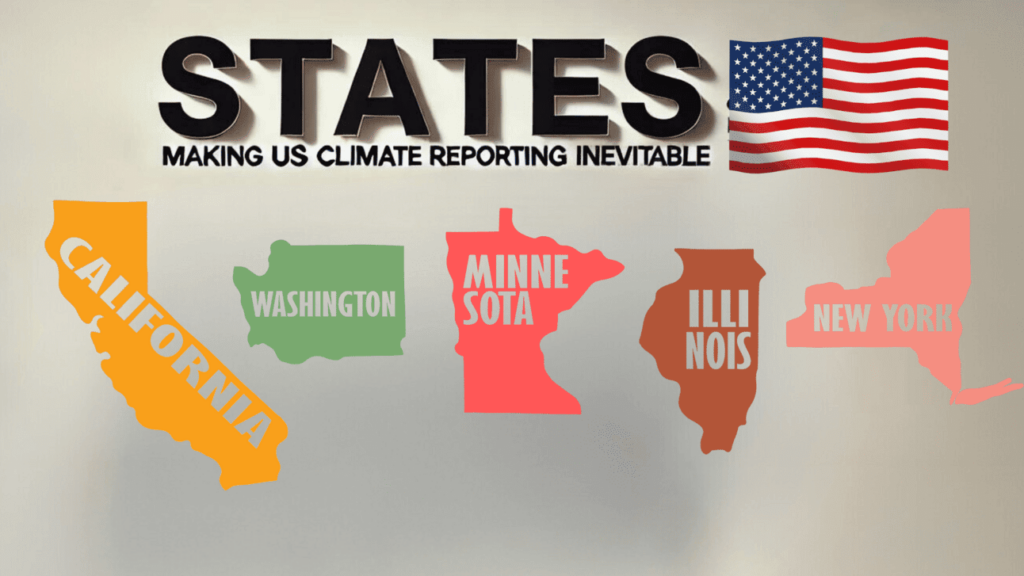Tim Mohin: States Making US Climate Reporting Inevitable

For more from Tim Mohin, sign up for his newsletter here
Last week, we shared how the implementation of California’s climate laws is likely to be delayed for two years. This week, research from Fitch Ratings revealed that California isn’t the only state moving ahead with a mandatory climate disclosure policy.
There are at least four additional states that are considering climate disclosure legislation. Most of these disclosure bills mirror the requirements in the California climate laws, with some slight nuances.
For example, New York, Washington State, and Illinois would require companies doing business in their state with overall annual revenues of more than $1 billion to report their Scope 1, 2, and 3 emissions verified by a third party – which is identical to the California law (SB253).
There are slight differences in how each state requires companies to report, as well as slight changes in adoption timelines and their position in state legislatures:
- Washington’s SB 6092: This bill is the same as California’s SB 253 (requiring climate emissions reporting), mandating companies with more than $1 billion in annual revenue to report Scope 1 and 2 in 2026 and Scope 3 the year after and get assurances. Washington’s bill is the furthest along, having passed multiple House and Senate committees, and is likely to become the second approved state-level climate disclosure law. However, the current suggested timeline is unlikely to be maintained, and Washington does not include a climate risk reporting mandate.
- New York’s SB S897C and SB 5437: New York’s bills also align with the California climate laws. The only slight difference is that SB 5437 requires annual climate risk reporting, whereas California’s SB 261 requires biennial reporting. SB S897C (climate emissions) currently sits in the New York Senate Finance Committee, and SB 5437 (climate risk) sits in the Senate Insurance Committee, meaning they are in the early stages of the approval process. If either is passed, companies will have to start reporting two years later.
- Illinois’ HB 4268: This bill is aligned with California’s SB 253 (emissions reporting) and would require companies doing business in Illinois with over $1 billion in revenue to report Scope 1, 2, and 3 emissions. It differs from California’s law in that it requires Scope 3 reporting in the same year as Scope 1 and 2, but gives companies an additional 180 days to disclose them. This bill also has a very ambitious adoption timeline with a planned but extremely unlikely January 2025 reporting deadline. The bill had its first reading earlier in the year and currently sits with the House Rules Committee.
- Minnesota’s SF 2744: This bill will require banks and credit unions with more than $1 billion in assets to make climate risk disclosures by completing a survey by July 30th each year. The state commissioner has to provide banks and credit unions with a survey form for them to use, but that is yet to be released. The bill currently sits with the State Senate.
The significance of all of these state-level policies is that they build a sense of inevitability to climate reporting in the US, regardless of what happens with the California and SEC rules. In addition, with these states largely aligning their disclosure legislation to California’s, there will be less reporting fragmentation. Never-the-less, widespread mandatory climate reporting in the US remains uncertain with the weekly (daily?) twists and turns. We will continue to monitor and report on the landscape as it unfolds.
RELATED ARTICLE: Tim Mohin: Delay Proposed for California Climate Laws












